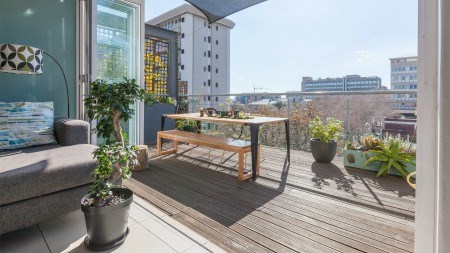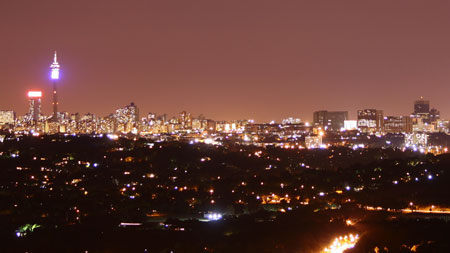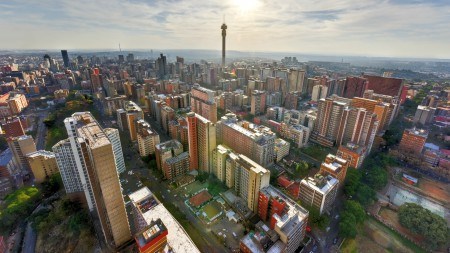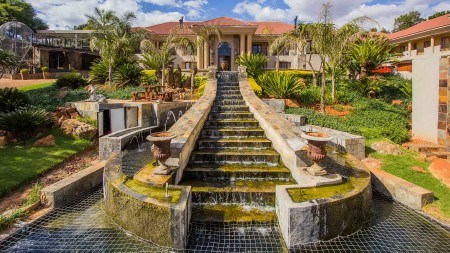Young professionals who work in the nearby tech companies and innovation hubs are snapping up property in the area in order to live close to where they work.
It is true that Braamfontein has not always had the best of reputations and if someone had to tell you that a day would come when this central suburb of Johannesburg would become a hot spot for creatives and young professionals, you probably would not have readily believed them.
Well, now that day has arrived and property experts agree that not only was the gentrification of Braamfontein a major success, but more young professionals would move here in a heartbeat if there wasn’t such a shortage of suitable accommodation.
Byron Cornish, a Licensee of Seeff in the JHB CBD, says the massive drive for tech companies and innovation hubs to move to the CBD (and especially Braamfontein), is accompanied by the aesthetic improvement of the area and a stronger emphasis on security.
“Many tech start-ups are housed in the almost complete Tshimolong precinct and the Wits tech hub. IBM and Microsoft are two of the strategic founding partners of this precinct and this has been massively positive for the area.
While Braamfontein is still mostly a student area because of the close proximity to WITS, UJ and many more, the area is also experiencing a greater demand from young professionals who want to live closer to where they work.
There are currently 12 sectional title buildings in Braamfontein, most of which offer small bachelor apartments geared towards students, but we are also seeing a good presence of young professionals looking to buy their first apartments in buildings like Civic Towers, Madison Lofts and The Liberty.
The factor limiting masses of young professionals streaming to Braamfontein is the amount of accommodation available and until new developments geared towards young professionals are built this will remain a mostly student area as this is where investors are getting their returns of up to 12%”.
Cornish continues that the biggest change in Braamfontein has been on the commercial front where many new shops, restaurants, bars and the ‘neighbourgoods market’ have all opened in recent years.
“In the past there were maybe one or two restaurants and bars that you could frequent, but now you can park in the middle of Braamfontein and walk down any street and find many places to choose from. This in turn adds to the vibe and increases the demand for small businesses to move back to the area”.
Cornish adds that the rest of the CBD has also seen improvement ranging from fixing up the streets to erecting new shopping centres like the Newtown Junction.
“Although the nightlife in the rest of the CBD is not as popular as it is in Braamfontein this is also slowly changing with the opening of more restaurants such as Urbanologi in Fox street and the many regularly frequented hot spots in the Maboneng precinct.
Property prices in Braamfontein and the CBD vary, but start at around R500 000 for a bachelor or one bedroom apartment in Braamfontein to a R1 million rand apartment in the CBD.
There are also a few penthouses which range from R1 million to R4 million and this includes a large 200 to 300m2 apartment with two bedrooms, two bathrooms, very modern finishes and beautiful views of the city.
This type of accommodation is especially favoured by creatives looking for inner city living”.
Cornish adds that more benefits of living in Braamfontein include the proximity to Gautrein, Park Station and the new bicycle lanes for those who cycle to work.
“Even though the uptake of these lanes has not been great the potential is there and we see many professionals who live in the city either walk or cycle to work if it is close enough or jump on the Gautrein if it is further”.
Cornish says the major appeal of living in Braamfontein and the CBD is the incredible infrastructure that is seen nowhere else in Johannesburg.
“A lot is being done to make the CBD attractive like the introduction of ‘First Thursdays’ where all the art galleries, bars and restaurants open on the first Thurday night of every month.
The Maboneng precinct also has a craft market on Sundays and the gentrification of this area is very popular with tourists and with Joburgers looking for something different.
In addition to this there are often events in Mary Fitzgerald Square and the market theatre is also a huge attraction.
Upliftment projects like the taking over of hijacked buildings and turning them into social housing developments is also a big priority”.
Cornish concludes that even though Hillbrow still has a way to go in terms of area safety, big brands and shops are moving back into the area which is encouraging.
“The buildings are also remarkably safe and include features like biometrics, access control and decent guarding.
The biggest challenge in Hillbrow is that the banks aren’t keen to grant loans here because of the reputation it has. As a result 90% of Hillbrow is let by tenants and not occupied by owners at the moment.
A tenant renting a bachelor apartment in Hillbrow pays rent of around R2500 per month, where the buying cost of the unit would be R150 000 to R200 000.
If the banks opened up to these lower income individuals they would be able to cover their bond costs quite easily and would also feel empowered by owning their own property.
This in turn would improve the buildings drastically as owners tend to take a keener interest into where their levies are going and it would also have a knock-on effect on surrounding areas like Yeoville and Berea”.




